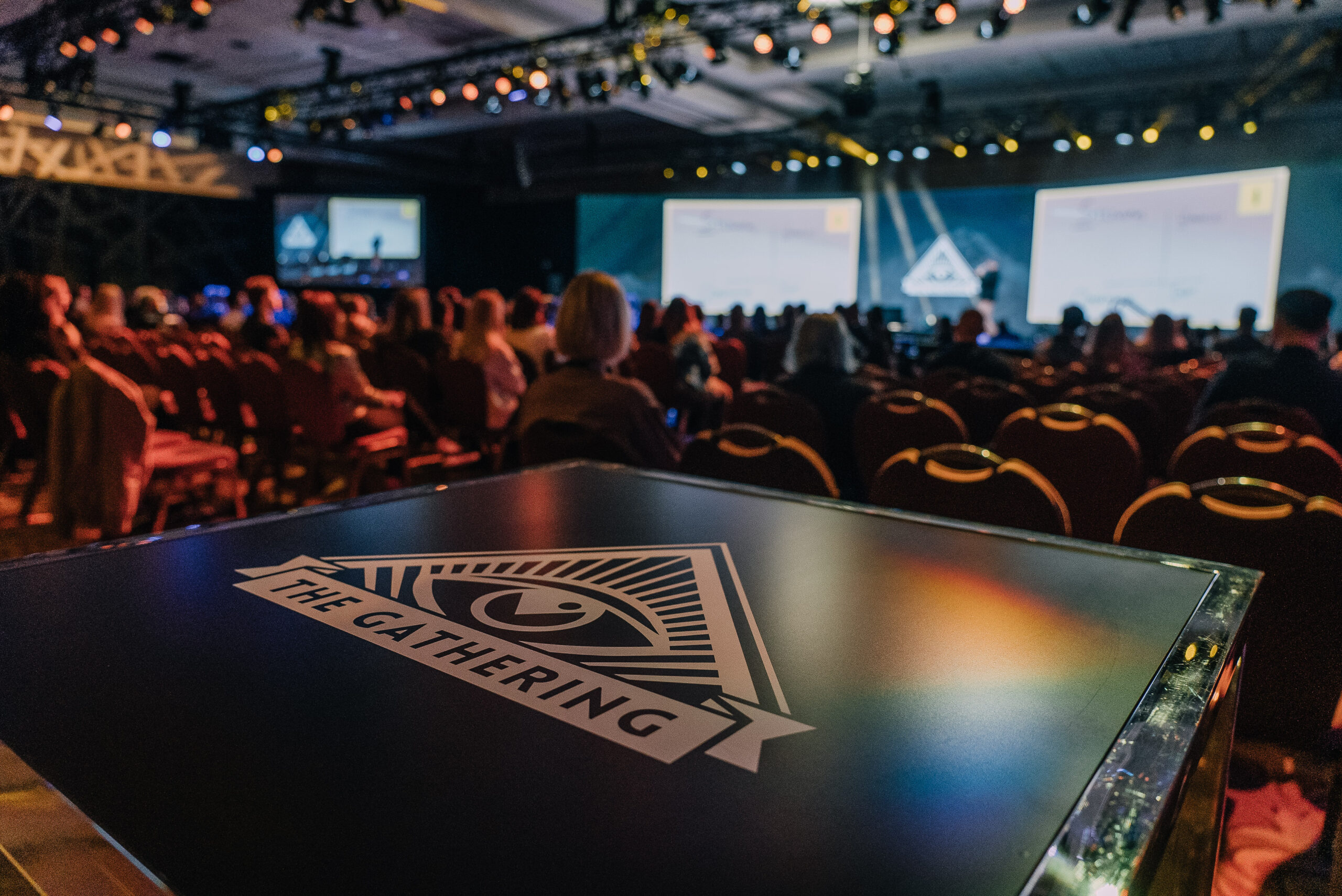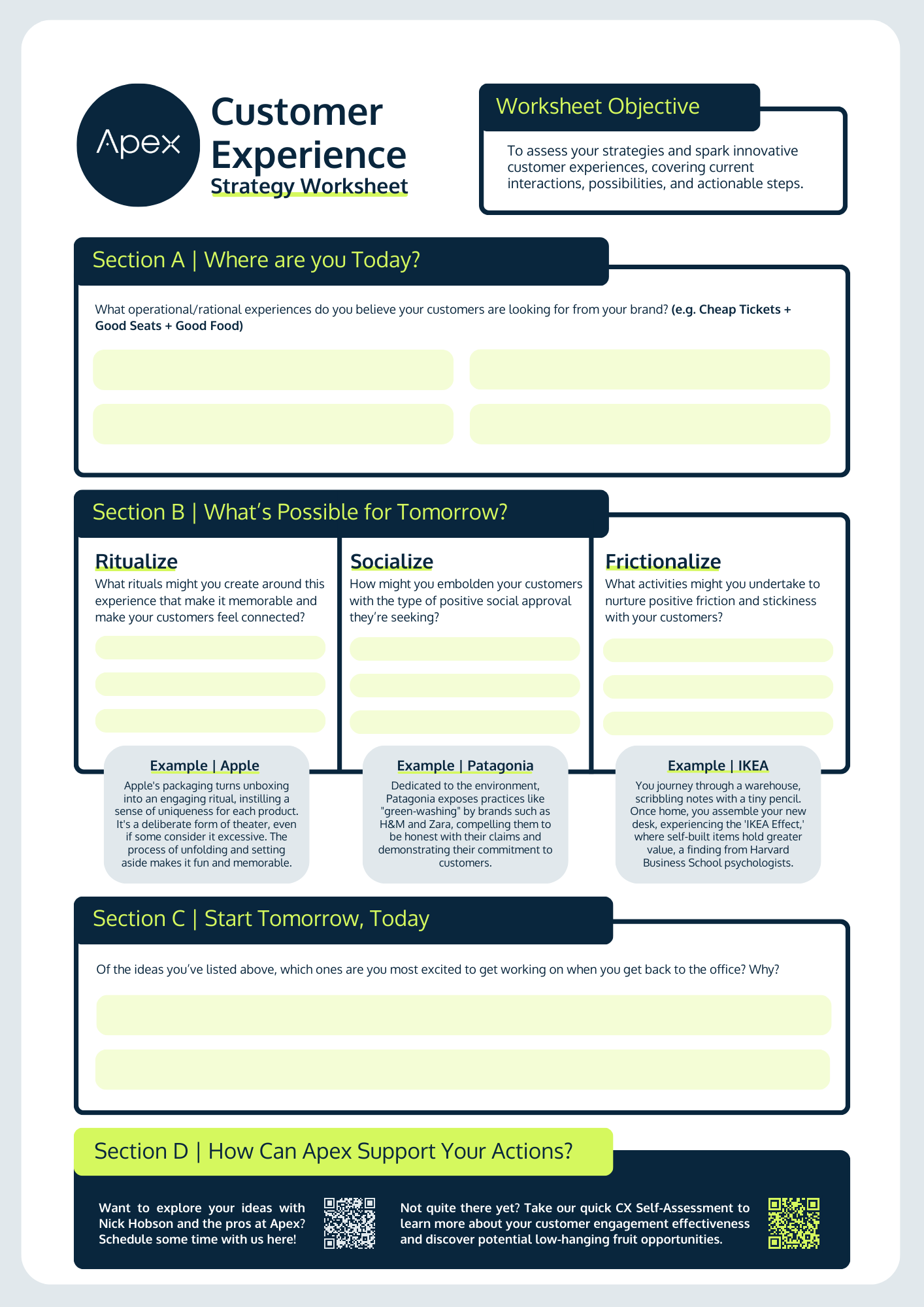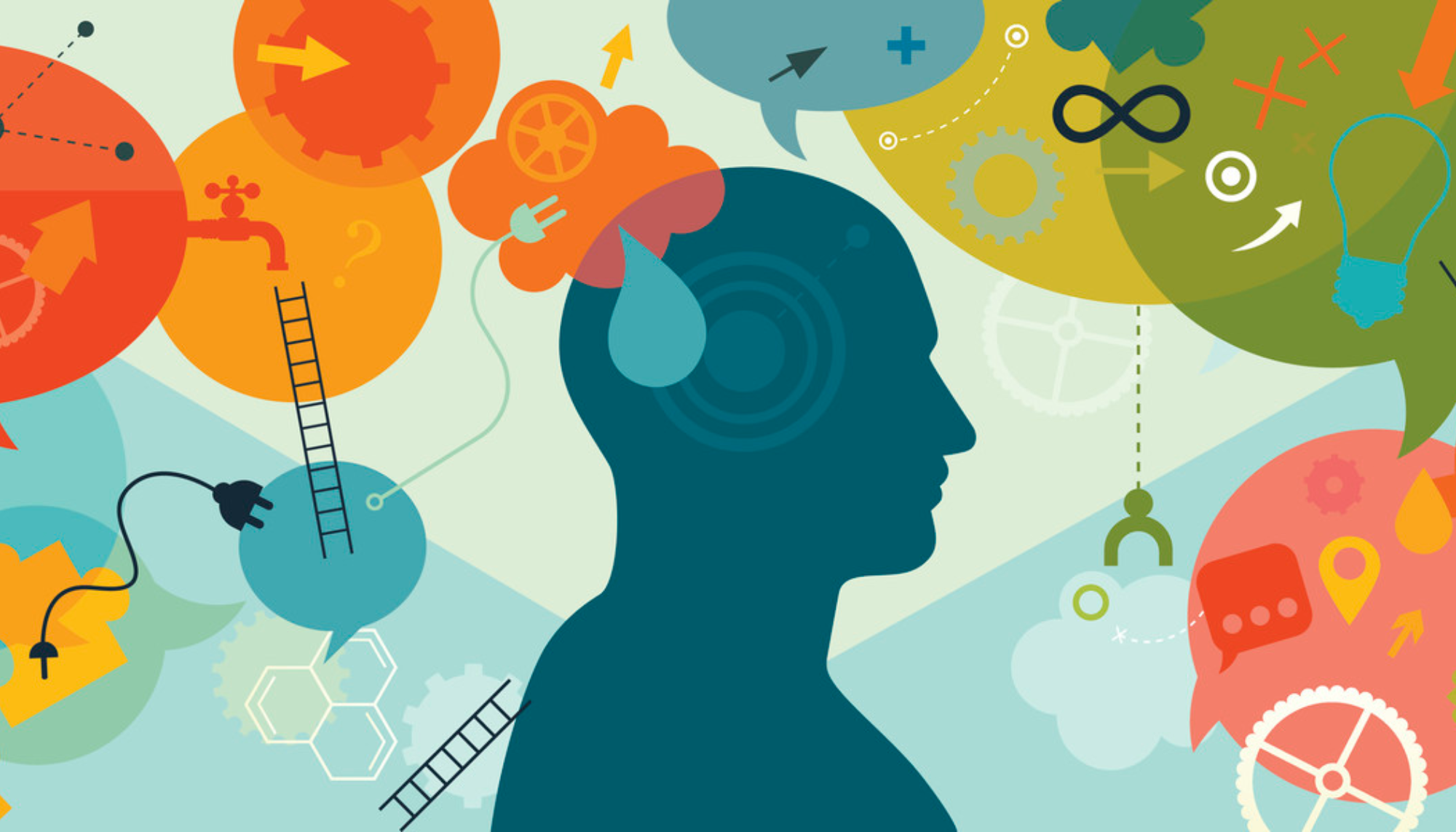Have you ever wondered what makes some brands so incredibly beloved by their customers? The key to building a super-loyal customer base lies in understanding the less rational aspects of human behavior. It’s easy for brands to get caught up in the latest trends, hoping these will bring them success, without realizing that true achievement comes from getting to know and working with the quirks, biases, and irrational traits that make us human.
At a recent conference, “The Gathering Summit,” Apex’s behavioral scientist, Nick Hobson, shared insights that challenge traditional thinking about creating brands that deeply resonate with their audience. In this blog post, we will dive into the ideas Nick discussed and see how irrationality, eccentricity, and human imperfections are vital in establishing brands that people genuinely care about. This is where behavioral science comes into play, offering a fresh perspective on what really matters in brand-building.
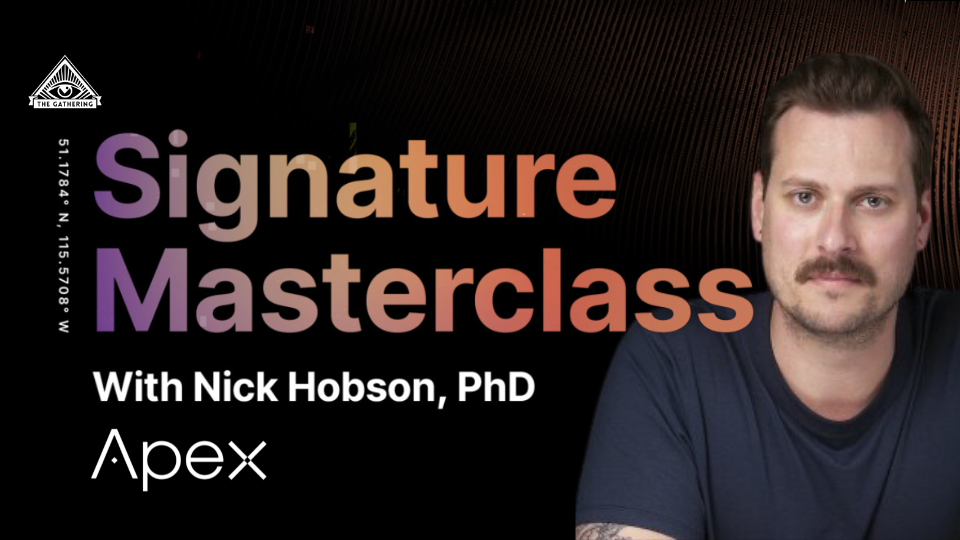
The Myth of Rationality
For decades, businesses and economics have operated under the assumption that humans are fundamentally rational beings. However, the realm of behavioral science and psychology has shed light on a stark reality: human behavior is far from rational. In fact, we are fundamentally driven by irrationality and emotion, even in this hyper-rational age.
The next revolution will be psychological not technological.
Rory Sutherland, Vice Chairman, Ogilvy UK
The Unchanging Human Nature
In today’s world of advancing technology and an emphasis on hyper-rationality, basic human nature remains unaltered. Despite the emergence of technologies that promise increasingly realistic virtual experiences, our fundamental human traits persist. We are still inherently irrational, guided by our emotions, biases, and quirks.
The Role of Behavioral Science
To build a cult(ure) of devotion, brands, marketing professionals, and CX leaders must develop a deep understanding of human nature. Appreciating human behavior’s unorthodox intricacies and embracing behavioral science’s fundamental teachings is crucial. This discipline provides valuable insights into human irrationality, which, when harnessed effectively, can propel brands to inspire unwavering devotion.
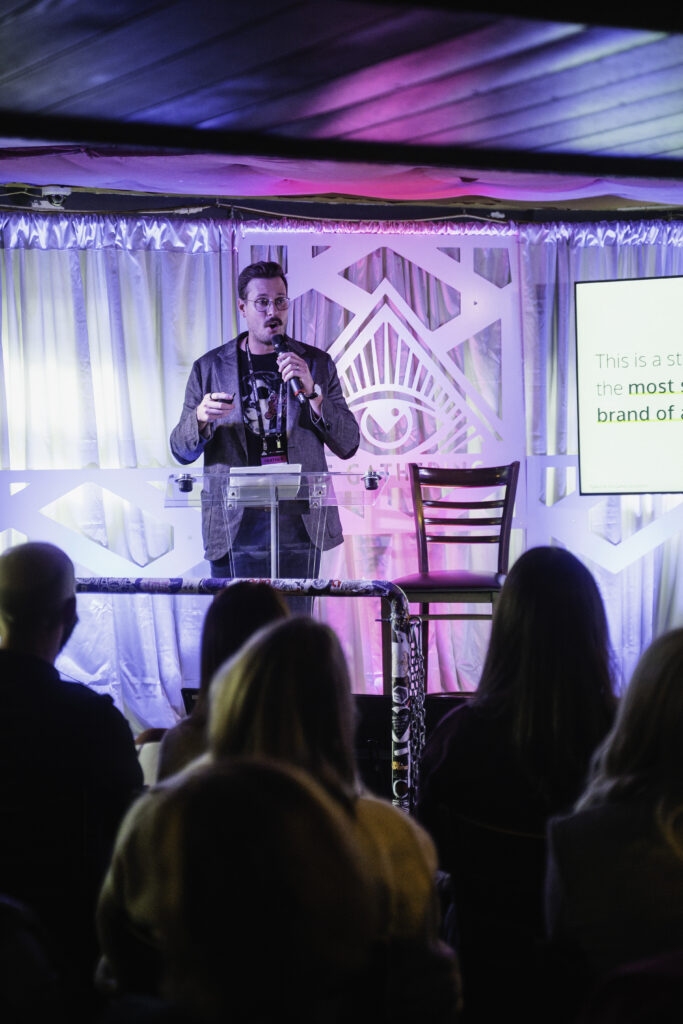
Signature Masterclass: Building a Cult Brand is a Load of BS
During Nick’s presentation, he highlighted three compelling case studies, each accompanied by actionable strategies for integrating behavioral science into your business. Let’s take a closer look:
Case Study #1: Ritualize the Fan Experience for Major League Soccer
Assumed Rational Reality: The common belief was that reducing ticket prices would be the most effective way to increase fan engagement in soccer matches.
The REAL Human Reality: However, the actual human behavior and psychology reveal a different story. Soccer games are more than just sporting events; they are a platform for creating and nurturing rituals. Rituals are inherently irrational, seemingly disconnected from reality, but they are profoundly effective in capturing continued interest and devotion. Rituals form the social glue that binds fans, igniting collective emotions and bringing people together in a powerful way. They are a “waste” of time and energy, yet they play a crucial role in building lasting connections between fans and the sport.
The Solution/Outcome:
To optimize fan engagement, we embarked on a journey to dissect rituals, breaking them down into their psychological features. This allowed us to design multiple ritual types that were injected into various soccer clubs’ experiences. By testing which of the psychological features proved most effective in building fan engagement and repeat ticket buyers, we could refine and implement strategies that revolved around these rituals. The outcome was increased fan engagement and a more profound sense of devotion to the sport and the clubs, showcasing the incredible power of embracing the irrational aspects of human behavior.
Case Study #2: Socialize the Customer Journey for a Recycling Corporation
Assumed Rational Reality: A common assumption was that recent college graduates needed education about the merits of recycling, and providing financial incentives would be the most effective approach.
The REAL Human Reality: Upon delving into the behavioral science of these young graduates, we uncovered a more complex truth. It wasn’t just rational incentives that drove their behaviors. Many of them experienced anxiety regarding their recycling practices, constantly questioning whether they were “doing it right.” Additionally, the desire for social approval played a significant role in their decision-making process. “Will I get the approval of my peers?” became a central concern.
The Solution/Outcome:
We realized that a purely rational approach was insufficient to drive recycling behaviors among these young graduates. To address their anxieties and harness the power of social approval, we needed to revamp the service design. Certain features were made more prominent to encourage the desired behaviors. Moments of interaction were inserted to help reduce anxiety and boost confidence. Furthermore, the service design was adjusted to provide small doses of social approval, offering tangible rewards for doing the right thing. The outcome was not only an increase in recycling but also the empowerment of young graduates to be more confident and accountable eco-citizens.
Case Study #3: Frictionalize the Dating App Scene
Assumed Rational Reality: It was believed that the more options and the faster swiping in dating apps, the better the outcomes.
The REAL Human Reality: A closer look at user behavior revealed a need for more deliberate decisions and interactions. Users didn’t want to rush through the dating experience; they needed time to make thoughtful decisions and meaningful connections. A fast-paced, option-loaded dating app experience left them feeling unsatisfied.
The Solution/Outcome:
Understanding this aspect of human behavior, we took a counterintuitive approach to improve the dating app scene. Instead of offering more options and quicker swiping, we introduced limits on swipes and enforced a minimum level of interaction with each profile. This frictionalized the experience, encouraging users to slow down, deliberate on their decisions, and engage more meaningfully. The outcome was a dating app that catered to the genuine needs of its users, ultimately creating more meaningful and successful connections. This case study demonstrates the importance of embracing the quirks and complexities of human behavior to drive more satisfying and effective outcomes.
BS for Passionate Customer Bases
Understanding the complexities of human behavior is a powerful key to unlocking a deeper connection with your audience’s needs and desires. By embracing behavioral science, brands can integrate this profound knowledge into their strategies, elevating the customer experience to unparalleled levels, fostering genuine customer loyalty, and delivering extraordinary results. The irrational and imperfect nature of human behavior becomes a wellspring of opportunity, and taking this approach marks the initial step in constructing a brand that cultivates profound and enduring connections.
Nick Hobson’s presentation at The Gathering Summit revealed the remarkable effectiveness of embracing and acting on human irrationality and imperfections in consumer behavior. We invite you to download our CX Strategy Worksheet to explore the strategies that can help transform your brand into one with exceptionally loyal and passionate customer bases.

